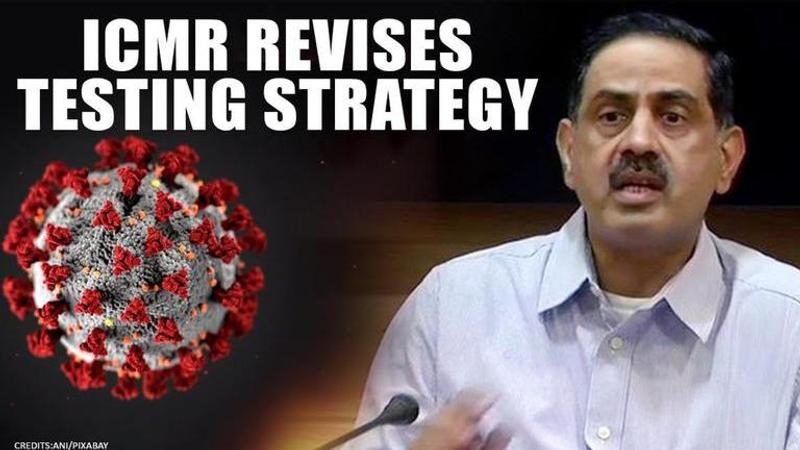Published 22:32 IST, April 9th 2020
ICMR revises COVID-19 testing strategy to include 'testing clusters using anti-body tests'
With India's focus shifted to 'Cluster containment' and testing for battling the pandemic Coronavirus, ICMR has revised its strategy for testing in clusters

With India's focus shifted to 'Cluster containment' and testing for battling the pandemic Coronavirus (COVID-19), the Indian Council of Medical Research (ICMR), on Thursday, has revised its testing strategy. The new strategy which has been released by the ICMR also includes testing in 'hotspots/cluster' for all symptomatic cases - within 7 days (rRT- PCR method) and after 7 days (antibody test). This comes after ICMR has also allowed the use of rapid anti-body testing, ordering 7 lakh test kits - which will arrive shortly. India's current tally lies at 5865 cases with 169 deaths.
ICMR revises COVID-19 testing strategy
ICMR allows 'sample collection sites'
While the Centre and several states have started 'cluster containment strategy', ICMR on Tuesday, issued a no-objection certificate (NOC) for establishing sample collection sites by state governments. It also issued advice for such sites stating recommended PPE should be used, regular disinfection, biosafety regulations, proper sample transportation. Incidentally, Delhi has gotten India's first drive-through COVID-19 sample collection facility at West Punjabi Bagh which takes 10-15 mins and receives the reports via email.
What is Cluster containment?
The cluster containment strategy would be to contain the disease within a defined geographic area by early detection of cases, breaking the chain of transmission and thus preventing its spread to new areas. India would be following a strategic approach for possible scenarios - travel-related cases reported in India, local transmission of COVID-19, large outbreaks amenable to containment, widespread community transmission of COVID-19 disease. With geographic quarantine, social distancing measures enhanced active surveillance, testing all suspected cases, isolation of cases, authorities will do extensive contact tracing and active search for cases in containment zone maintaining 100% lockdown.
Coronavirus crisis in India
As of date, 5865 positive cases have been reported of the pandemic Coronavirus (COVID-19) - 477 have been discharged and Maharashtra reported the highest at 1364. 169 deaths have been reported till date. India has suspended all visas and barred travel from Afghanistan, Philippines, EU, UK, China, Malaysia and mandatory 14-day quarantine from several other countries. The Prime Minister has issued a 21-day countrywide lockdown starting from 23 March to April 15 and the Finance Minister has announced a Rs 1.7 lakh crore package under the 'PM Gareeb Kalyan Scheme'. With the rise in the number of cases, the Centre and several states are mulling extending lockdown.
Updated 22:32 IST, April 9th 2020





